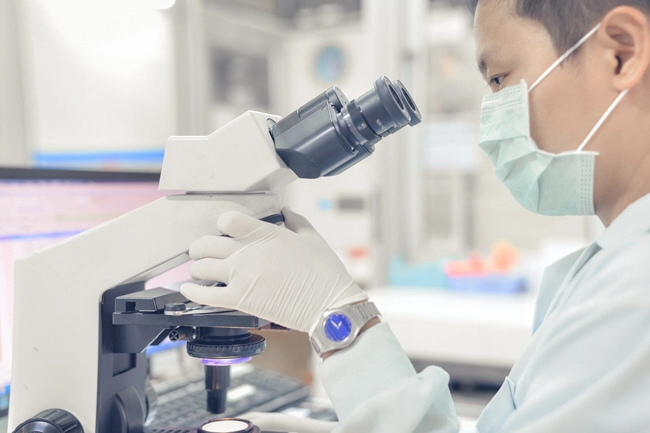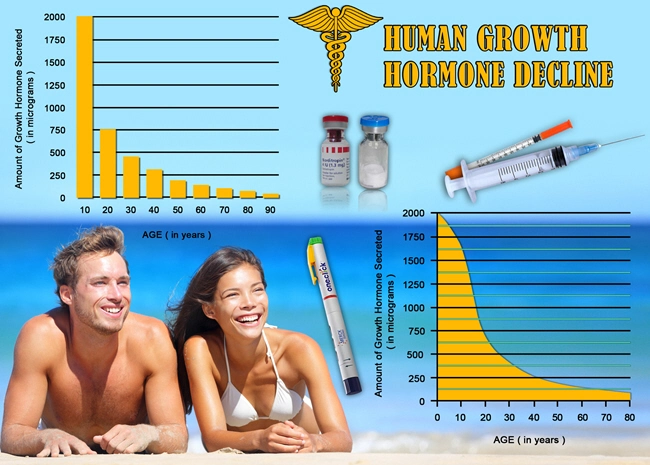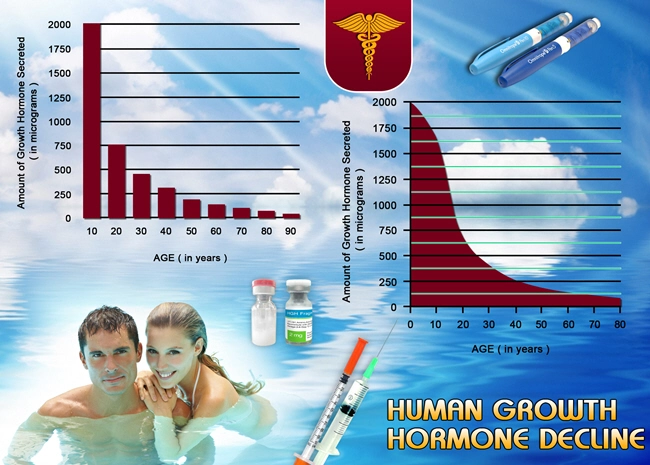
Introduction
Prostate cancer remains one of the most common cancers among American males, with treatment modalities ranging from surgery to radiation therapy and hormonal therapy. While these treatments have improved survival rates, they often come with side effects that can significantly impact the quality of life. One of the most distressing side effects is erectile dysfunction (ED), which can affect a patient's psychological well-being and intimate relationships. This article delves into a longitudinal study that followed 500 prostate cancer survivors to explore the impact of various treatment methods on the development of ED, providing insights and guidance for patients and healthcare providers.
Study Methodology and Demographics
The study included 500 American males diagnosed with prostate cancer, ranging in age from 45 to 75 years. Participants were followed for five years post-treatment, with regular assessments of their erectile function using validated questionnaires such as the International Index of Erectile Function (IIEF). The cohort was divided into groups based on the type of treatment received: radical prostatectomy, radiation therapy, and hormonal therapy.
Impact of Radical Prostatectomy on Erectile Function
Radical prostatectomy, the surgical removal of the prostate gland, was found to have a significant impact on erectile function. Approximately 60% of the participants who underwent this procedure reported varying degrees of ED within the first year post-surgery. The study highlighted that nerve-sparing techniques, which aim to preserve the nerves responsible for erections, were associated with a lower incidence of ED. However, even with nerve-sparing surgery, the risk of ED remained high, with 40% of men still experiencing difficulties five years post-operation.
Effects of Radiation Therapy on Sexual Health
Radiation therapy, another common treatment for prostate cancer, was also linked to the development of ED. The study found that 50% of participants who underwent radiation therapy experienced ED within two years of treatment completion. The impact of radiation on erectile function appeared to be dose-dependent, with higher doses correlating with a higher incidence of ED. Additionally, the study noted that the onset of ED in this group was often gradual, with symptoms worsening over time.
Hormonal Therapy and Its Role in ED Development
Hormonal therapy, which involves the use of medications to lower testosterone levels, was found to have a profound effect on erectile function. The study revealed that 70% of participants on hormonal therapy developed ED within the first year of treatment. The high incidence of ED in this group was attributed to the direct impact of reduced testosterone levels on sexual function. However, the study also noted that ED symptoms in this group were often reversible upon cessation of hormonal therapy, offering hope for recovery of erectile function in some cases.
Psychological and Relational Impacts of ED
Beyond the physical aspects, the study emphasized the psychological and relational impacts of ED on prostate cancer survivors. Participants reported feelings of frustration, depression, and anxiety related to their sexual dysfunction. The study highlighted the importance of addressing these psychological aspects through counseling and support groups, which can help patients cope with the emotional toll of ED.
Management and Treatment Options for ED
The study also explored various management and treatment options for ED in prostate cancer survivors. Pharmacological interventions such as phosphodiesterase type 5 (PDE5) inhibitors were found to be effective in some cases, particularly for those who underwent radiation therapy. For patients with more severe ED, penile implants and vacuum erection devices were considered viable options. The study stressed the importance of a multidisciplinary approach, involving urologists, psychologists, and sexual health specialists, to tailor treatment plans to individual needs.
Conclusion
The longitudinal study of 500 prostate cancer survivors provides valuable insights into the impact of various treatment modalities on the development of erectile dysfunction. While the findings underscore the high prevalence of ED among prostate cancer survivors, they also highlight the importance of personalized treatment plans and psychological support. By understanding the link between prostate cancer treatment and ED, healthcare providers can better equip their patients to navigate the challenges of survivorship, ultimately improving their quality of life.
Contact Us Today For A Free Consultation
Dear Patient,
Once you have completing the above contact form, for security purposes and confirmation, please confirm your information by calling us.
Please call now: 1-800-380-5339.
Welcoming You To Our Clinic, Professor Tom Henderson.

- Exploring New Horizons: Overcoming Erectile Dysfunction to Rekindle Romantic Intimacy [Last Updated On: February 15th, 2025] [Originally Added On: February 15th, 2025]
- Embarking on the Journey of Triumph: A Comprehensive Guide to Conquer Erectile Dysfunction [Last Updated On: February 25th, 2025] [Originally Added On: February 25th, 2025]
- Triumph Over Trials: Overcoming Battles with Erectile Dysfunction [Last Updated On: February 26th, 2025] [Originally Added On: February 26th, 2025]
- Alchemy of Attraction: Grasping the Biomechanical Puzzle of Erectile Dysfunction [Last Updated On: February 27th, 2025] [Originally Added On: February 27th, 2025]
- Breaking the Stigma: Understanding and Overcoming Erectile Dysfunction [Last Updated On: February 28th, 2025] [Originally Added On: February 28th, 2025]
- Unraveling Misconceptions: A Comprehensive Analysis of Erectile Dysfunction [Last Updated On: February 28th, 2025] [Originally Added On: February 28th, 2025]
- Breaking Through the Shadows: Unveiling the Psychological Implications of Erectile Dysfunction [Last Updated On: March 1st, 2025] [Originally Added On: March 1st, 2025]
- The Pill or The Promise: Unveiling The Comparative Efficiency of Erectile Dysfunction Medications [Last Updated On: March 2nd, 2025] [Originally Added On: March 2nd, 2025]
- Enhancing Intimacy in Modern Relationships: The Role of Medical Interventions, Psychological Counseling, and Lifestyle Changes in Improving Sexual Health [Last Updated On: March 3rd, 2025] [Originally Added On: March 3rd, 2025]
- Navigating the Path to Recovery: Understanding and Managing Erectile Dysfunction [Last Updated On: March 3rd, 2025] [Originally Added On: March 3rd, 2025]
- Comprehensive Guide to Understanding and Treating Erectile Dysfunction [Last Updated On: March 4th, 2025] [Originally Added On: March 4th, 2025]
- Exploring the Psychological Impact of Erectile Dysfunction on Men and Relationships [Last Updated On: March 5th, 2025] [Originally Added On: March 5th, 2025]
- Understanding Erectile Dysfunction: Causes, Treatment, and Medication Efficacy [Last Updated On: March 6th, 2025] [Originally Added On: March 6th, 2025]
- The Evolution of Erectile Dysfunction Treatments: From Ancient Remedies to Modern Innovations [Last Updated On: March 7th, 2025] [Originally Added On: March 7th, 2025]
- Revolutionizing Erectile Dysfunction Treatment: Innovations, Telemedicine, and Personalized Care [Last Updated On: March 8th, 2025] [Originally Added On: March 8th, 2025]
- The Vascular Role in Erectile Dysfunction: Understanding, Treatment, and Holistic Management [Last Updated On: March 9th, 2025] [Originally Added On: March 9th, 2025]
- Unveiling the Battle: Testosterone's Impact on Erectile Dysfunction in American Men [Last Updated On: March 12th, 2025] [Originally Added On: March 12th, 2025]
- Lifestyle Changes to Combat Erectile Dysfunction in American Males [Last Updated On: March 13th, 2025] [Originally Added On: March 13th, 2025]
- Overcoming Erectile Dysfunction: Causes, Treatments, and Inspiring Recovery Stories [Last Updated On: March 13th, 2025] [Originally Added On: March 13th, 2025]
- Unveiling the Truth: Dispelling Myths About Erectile Dysfunction in American Men [Last Updated On: March 15th, 2025] [Originally Added On: March 15th, 2025]
- Exploring Alternative Therapies for Erectile Dysfunction in American Males [Last Updated On: March 17th, 2025] [Originally Added On: March 17th, 2025]
- Telemedicine's Role in Managing Erectile Dysfunction: Benefits and Challenges [Last Updated On: March 18th, 2025] [Originally Added On: March 18th, 2025]
- Innovative Therapies and Technology Transforming Erectile Dysfunction Treatment in the U.S. [Last Updated On: March 18th, 2025] [Originally Added On: March 18th, 2025]
- Erectile Dysfunction: Understanding, Treating, and Empowering American Men [Last Updated On: March 19th, 2025] [Originally Added On: March 19th, 2025]
- Global Approaches to Erectile Dysfunction: Treatments Compared for American Males [Last Updated On: March 19th, 2025] [Originally Added On: March 19th, 2025]
- Erectile Dysfunction: Couples' Guide to Understanding, Treating, and Overcoming ED Together [Last Updated On: March 19th, 2025] [Originally Added On: March 19th, 2025]
- Managing Erectile Dysfunction: Medical, Lifestyle, and Mental Health Approaches [Last Updated On: March 19th, 2025] [Originally Added On: March 19th, 2025]
- Stress, Sleep, and ED: Strategies for American Men to Enhance Sexual Health [Last Updated On: March 19th, 2025] [Originally Added On: March 19th, 2025]
- Boosting Libido and Combating ED with Diet and Exercise: A Guide for American Men [Last Updated On: March 20th, 2025] [Originally Added On: March 20th, 2025]
- Managing Erectile Dysfunction: A Holistic Guide for American Men [Last Updated On: March 21st, 2025] [Originally Added On: March 21st, 2025]
- Exploring Treatments for Erectile Dysfunction: Pills, Injections, and Beyond [Last Updated On: March 21st, 2025] [Originally Added On: March 21st, 2025]
- Natural Remedies and Lifestyle Changes to Combat Erectile Dysfunction in American Men [Last Updated On: March 21st, 2025] [Originally Added On: March 21st, 2025]
- Erectile Dysfunction in the U.S.: Prevalence, Impacts, and Holistic Management Approaches [Last Updated On: March 22nd, 2025] [Originally Added On: March 22nd, 2025]
- Erectile Dysfunction: Causes, Treatments, and Lifestyle Impact on American Men [Last Updated On: March 23rd, 2025] [Originally Added On: March 23rd, 2025]
- Erectile Dysfunction: Costs, Treatments, and Financial Management Strategies for American Males [Last Updated On: March 23rd, 2025] [Originally Added On: March 23rd, 2025]
- Counseling's Vital Role in Treating Erectile Dysfunction: A Comprehensive Approach [Last Updated On: March 23rd, 2025] [Originally Added On: March 23rd, 2025]
- Vascular Health's Crucial Role in American Males' Erectile Function [Last Updated On: March 23rd, 2025] [Originally Added On: March 23rd, 2025]
- Exercise as a Holistic Approach to Managing Erectile Dysfunction in American Men [Last Updated On: March 23rd, 2025] [Originally Added On: March 23rd, 2025]
- CBT: A Powerful Therapy for American Males with Erectile Dysfunction [Last Updated On: March 24th, 2025] [Originally Added On: March 24th, 2025]
- Celebrity Influence Boosts Awareness and Treatment of Erectile Dysfunction in Men [Last Updated On: March 24th, 2025] [Originally Added On: March 24th, 2025]
- Erectile Dysfunction: From Taboo to Treatable - Media and Medical Insights for American Men [Last Updated On: March 24th, 2025] [Originally Added On: March 24th, 2025]
- Restorative Sleep: A Key to Enhancing Erectile Function in American Males [Last Updated On: March 24th, 2025] [Originally Added On: March 24th, 2025]
- Male Anatomy and Erectile Dysfunction: Causes, Diagnosis, and Treatment Strategies [Last Updated On: March 24th, 2025] [Originally Added On: March 24th, 2025]
- Work Stress and Its Impact on Men's Sexual Health: Understanding ED [Last Updated On: March 24th, 2025] [Originally Added On: March 24th, 2025]
- Personalized Approaches to Treating Erectile Dysfunction in American Men [Last Updated On: March 24th, 2025] [Originally Added On: March 24th, 2025]
- Erectile Dysfunction's Impact on Self-Esteem: Strategies for American Males to Rebuild Confidence [Last Updated On: March 24th, 2025] [Originally Added On: March 24th, 2025]
- Understanding and Overcoming Performance Anxiety and Erectile Dysfunction in Men [Last Updated On: March 25th, 2025] [Originally Added On: March 25th, 2025]
- Transformative ED Treatments: Success Stories and Innovations Across U.S. Clinics [Last Updated On: March 25th, 2025] [Originally Added On: March 25th, 2025]
- Chronic Illness and ED: Understanding Links and Managing Sexual Health in American Males [Last Updated On: March 25th, 2025] [Originally Added On: March 25th, 2025]
- Nerve Damage and Erectile Dysfunction: Causes, Diagnosis, and Treatment Options [Last Updated On: March 25th, 2025] [Originally Added On: March 25th, 2025]
- Erectile Dysfunction: An Early Indicator of Cardiovascular Disease in American Males [Last Updated On: March 25th, 2025] [Originally Added On: March 25th, 2025]
- Wearable Technology: A New Frontier in Managing Erectile Dysfunction [Last Updated On: March 25th, 2025] [Originally Added On: March 25th, 2025]
- Erectile Dysfunction: Navigating Impact, Communication, and Recovery in Relationships [Last Updated On: March 25th, 2025] [Originally Added On: March 25th, 2025]
- Essential Nutrients for Enhancing Sexual Health and Combating Erectile Dysfunction [Last Updated On: March 25th, 2025] [Originally Added On: March 25th, 2025]
- Cutting-Edge ED Treatments: Shockwave, Gene, and Stem Cell Therapies Offer New Hope [Last Updated On: March 25th, 2025] [Originally Added On: March 25th, 2025]
- Managing Erectile Dysfunction: Communication, Intimacy, and Professional Help for American Men [Last Updated On: March 26th, 2025] [Originally Added On: March 26th, 2025]
- PDE5 Inhibitors: Revolutionizing Erectile Dysfunction Treatment in American Males [Last Updated On: March 26th, 2025] [Originally Added On: March 26th, 2025]
- Erectile Dysfunction and Mental Health: Navigating Depression and Anxiety in American Men [Last Updated On: March 26th, 2025] [Originally Added On: March 26th, 2025]
- Revolutionizing Men's Health: Advanced Treatments for Erectile Dysfunction [Last Updated On: March 26th, 2025] [Originally Added On: March 26th, 2025]
- New Medications and Therapies Revolutionizing Erectile Dysfunction Treatment [Last Updated On: March 26th, 2025] [Originally Added On: March 26th, 2025]
- Understanding Erections and Managing Erectile Dysfunction in American Men [Last Updated On: March 27th, 2025] [Originally Added On: March 27th, 2025]
- Navigating Erectile Dysfunction: Rebuilding Romance and Intimacy in Relationships [Last Updated On: March 27th, 2025] [Originally Added On: March 27th, 2025]
- Natural Remedies for Erectile Dysfunction: Ginseng, L-Arginine, and Horny Goat Weed [Last Updated On: March 27th, 2025] [Originally Added On: March 27th, 2025]
- Managing Performance Anxiety and ED: Strategies for American Men [Last Updated On: March 28th, 2025] [Originally Added On: March 28th, 2025]
- Enhancing Sexual Health: Diet, Lifestyle, and Medical Strategies for American Men [Last Updated On: March 28th, 2025] [Originally Added On: March 28th, 2025]
- Exploring Non-Drug Treatments for Erectile Dysfunction in American Men [Last Updated On: March 28th, 2025] [Originally Added On: March 28th, 2025]
- Holistic Approaches to Overcome Erectile Dysfunction in American Males [Last Updated On: March 28th, 2025] [Originally Added On: March 28th, 2025]
- Erectile Dysfunction: Causes, Management Strategies, and Expert Health Tips [Last Updated On: March 28th, 2025] [Originally Added On: March 28th, 2025]
- Physical Therapy: A Promising Approach to Treating Erectile Dysfunction in American Males [Last Updated On: March 29th, 2025] [Originally Added On: March 29th, 2025]
- Erectile Dysfunction and Prostate Health: Understanding the Vital Connection for Men [Last Updated On: March 30th, 2025] [Originally Added On: March 30th, 2025]
- Erectile Dysfunction: Holistic Approaches for American Men's Sexual Health [Last Updated On: March 30th, 2025] [Originally Added On: March 30th, 2025]
- Navigating Erectile Dysfunction: A Comprehensive Guide to Consultations and Treatment [Last Updated On: March 31st, 2025] [Originally Added On: March 31st, 2025]
- Managing Erectile Dysfunction: The Power of Positivity and Mental Strategies [Last Updated On: April 1st, 2025] [Originally Added On: April 1st, 2025]
- Erectile Dysfunction: Understanding Causes, Breaking Stigma, and Exploring Modern Treatments [Last Updated On: April 3rd, 2025] [Originally Added On: April 3rd, 2025]
- Transforming ED into Deeper Intimacy: A Journey for American Couples [Last Updated On: April 4th, 2025] [Originally Added On: April 4th, 2025]
- Erectile Dysfunction: Personalized Treatment Approaches and Dosage Considerations [Last Updated On: April 5th, 2025] [Originally Added On: April 5th, 2025]
- Future of ED Treatment: Innovations in Drug Delivery and Technology [Last Updated On: April 5th, 2025] [Originally Added On: April 5th, 2025]
- Erectile Dysfunction: From Research Innovations to Practical Solutions and Future Directions [Last Updated On: April 6th, 2025] [Originally Added On: April 6th, 2025]
- Genetic Factors in ED: Personalizing Treatment for American Males [Last Updated On: April 9th, 2025] [Originally Added On: April 9th, 2025]
- Erectile Dysfunction Medications: Enhancing Confidence and Performance in American Males [Last Updated On: April 9th, 2025] [Originally Added On: April 9th, 2025]








